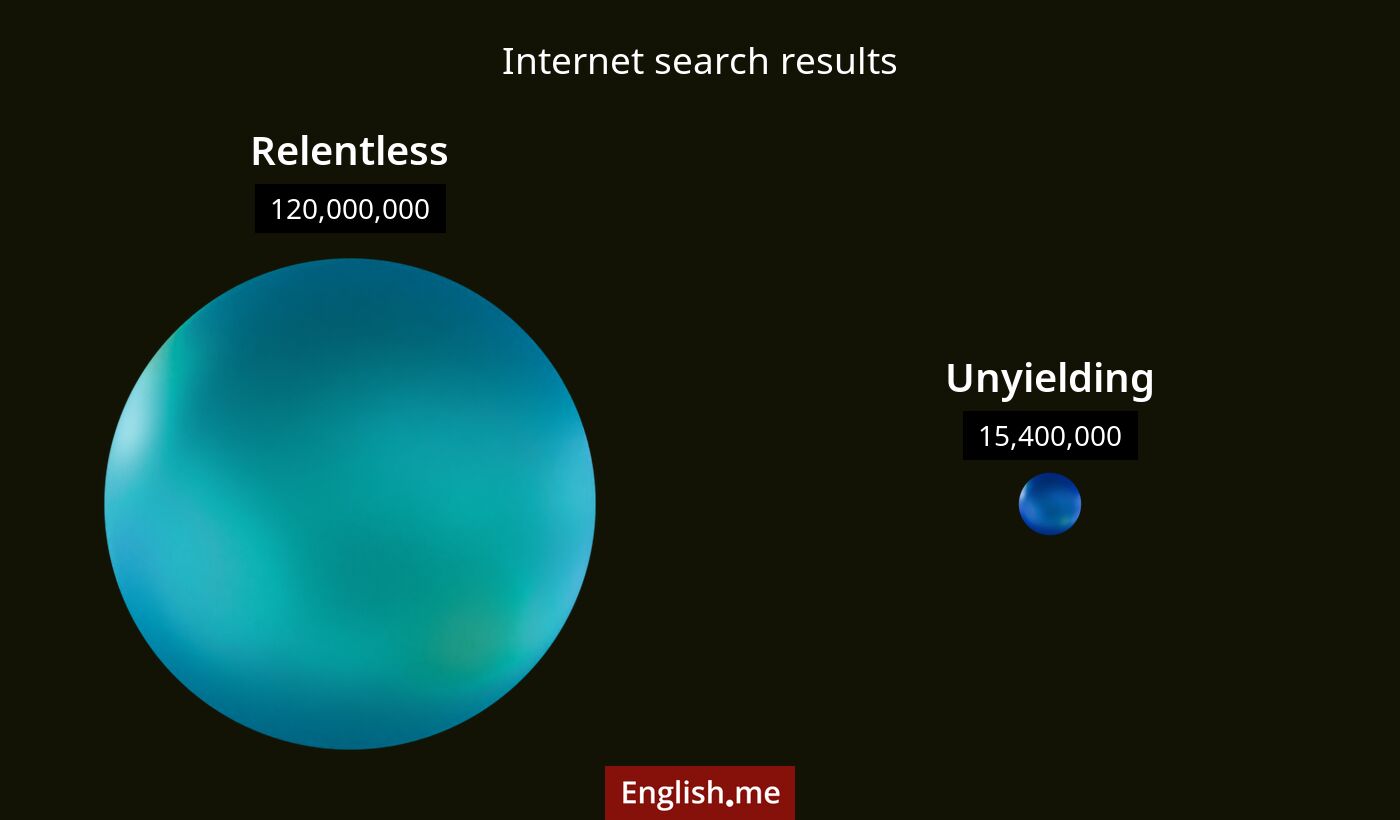"Relentless" and "unyielding": understanding their distinctions
Reviewed and edited by  Anwar Kareem 19/03/2025, 08:16
Anwar Kareem 19/03/2025, 08:16
English.me team member

 What is similar?
What is similar?
Both "relentless" and "unyielding" describe a quality of persistence and determination, indicating refusal to give up or relent in the face of obstacles.
 What is different?
What is different?
"Relentless" often implies continuous and intense action without pause, sometimes carrying a negative connotation of being harsh or oppressive. "Unyielding" emphasizes firmness and resistance to pressure or influence, highlighting steadfastness and inflexibility, often in a positive or neutral sense.
 Which one is more common?
Which one is more common?

 Examples of usage
Examples of usage
Relentless- She was relentless in her pursuit of excellence.
- The relentless rain showed no signs of stopping.
- Their team faced relentless opposition throughout the match.
- He maintained an unyielding commitment to his principles.
- The unyielding material did not bend under pressure.
- Her unyielding spirit inspired those around her.

 English
English español
español française
française italiano
italiano deutsche
deutsche 日本語
日本語 polski
polski česky
česky svenska
svenska Türkçe
Türkçe Nederlands
Nederlands